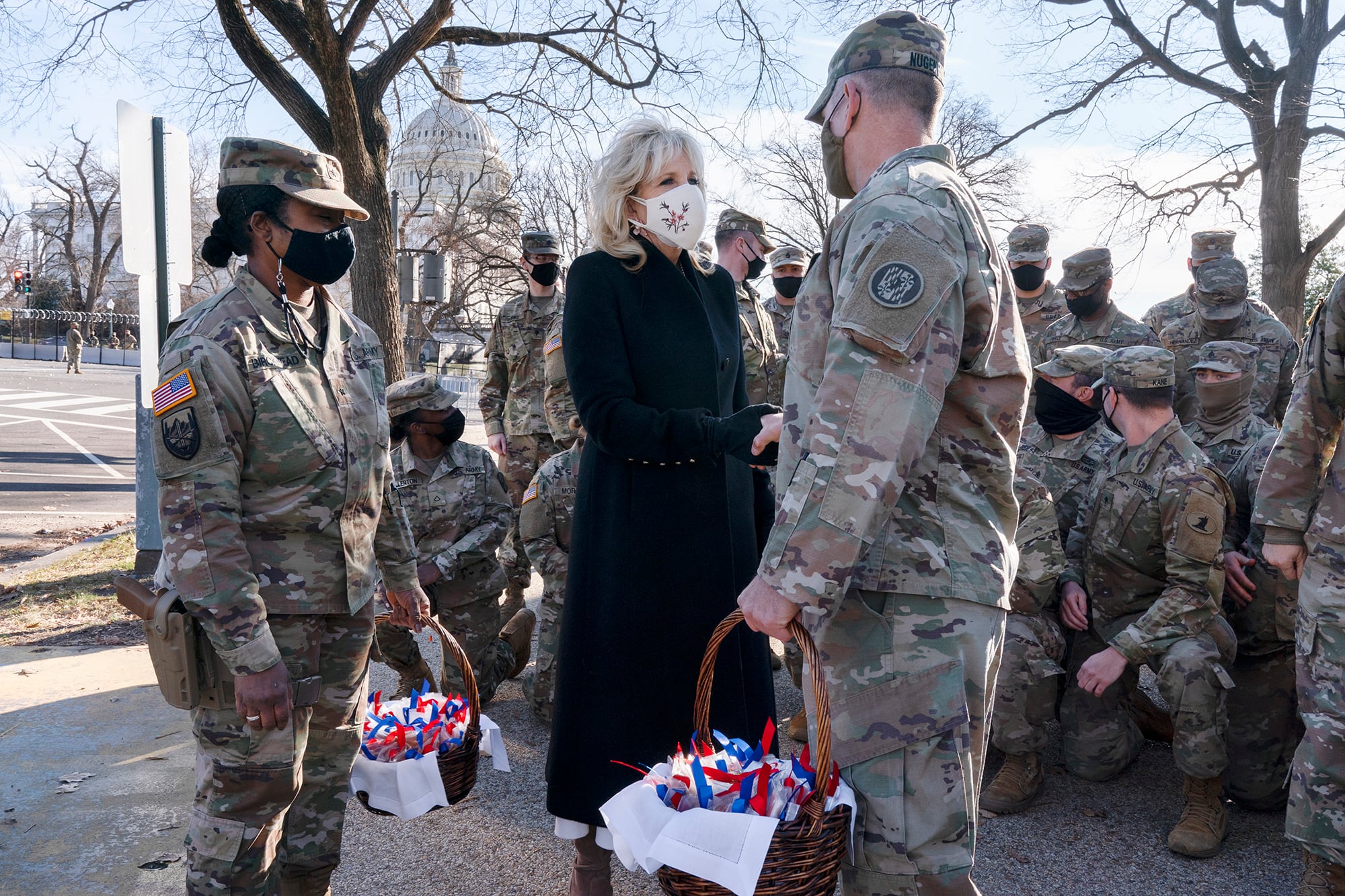When Jennifer Mackinday became a full-time caregiver for her brother, James, after he was injured in a roadside bomb attack in Iraq in 2005, the two siblings found themselves thrust into an unfamiliar situation without much support.
“When my brother returned, I needed to spend most of my time caring for him,” she said. “That meant I separated from my civilian community, and he was separated from his support group, which was the military.
“I didn’t have those touch points in my community and I didn’t know really where to turn to get my questions answered. I spent a number of years doing everything by myself.”
Veterans advocates for years have emphasized the importance of community help in recovery and reintegration for wounded troops. But a new survey released this week by the Military Family Advisory Network and Wounded Warrior Project suggests that veterans who spend only a few years in the ranks may have an even more difficult time finding those support networks than their retired peers.
RELATED

“Every time we went into one of these questions, we found a difference between the [retired and non-retired] populations,” said Shelly Kimball, research director for MFNA. “For us, that gives us a pathway forward for where we need to be.”
The survey, which polled 1,276 post-9/11 veterans and caregivers last fall, found less satisfaction with health care access among non-retirees than with retired troops (22 percent negative vs. 11 percent).
Fewer non-retiree families had adequate financial savings than their retired peers, with 43 percent of retirees reporting $5,000 or more in emergency funds on hand compared to 18 percent for non-retirees.
Traditional military retirees receive a pension from their service, and both they and medically retired individuals can receive some health care benefits for life. But other questions showed unexpected transition issues hitting non-retirees harder than their peers.
For example, about 29 percent of post-9/11 veterans who left before retirement said they have concerns about their own alcohol use or a family member’s excessive drinking, compared to 15 percent of retirees with those concerns. Researchers also saw similar splits on the issues between caregivers of each group.
Retirees were more likely to live close to military bases and less likely to be divorced, according to the survey. Nearly 30 percent of non-retirees said they lived at least 20 miles from their primary care doctor, as opposed to only 17 percent of military retirees.
The survey sample relied heavily on WWP and MFAN members, which may have resulted in a higher proportion of respondents with serious medical issues and significant transition challenges.
But researchers said that the results “make it clear that post-9/11 veterans, retirees, and their family members have different needs that cannot be met with one-size-fits-all solutions. Taking into account their unique perspectives and experiences illuminates the most e!ective ways to give this population the best opportunity to thrive.”
RELATED

In Mackinday’s case, she said the lack of other young veterans in the community where she lived with her brother caused numerous complications. Her lack of military knowledge made navigating military and Veterans Affairs benefits difficult, and both siblings struggled with increased stress and loneliness.
“I didn’t know how to ask for help. And I didn’t know how to accept it when it was being offered,” she said. “Ultimately that led me to a really dark place in my life when I felt so isolated and alone that I thought about taking my own life.”
Mackinday said they eventually connected with Wounded Warrior Project, where they each found their own support networks and sense of community. WWP officials said that’s a common refrain from their members
“In conversations I’ve had with veterans, they share how they struggled to find that social support and that connection,” said Amanda Peterson, senior researcher for WWP. “So it’s really important that we develop additional ways for post-9/11 veterans and their families to connect with each other, and get the resources that they need.”
The full report is available at the MFAN web site.
Leo covers Congress, Veterans Affairs and the White House for Military Times. He has covered Washington, D.C. since 2004, focusing on military personnel and veterans policies. His work has earned numerous honors, including a 2009 Polk award, a 2010 National Headliner Award, the IAVA Leadership in Journalism award and the VFW News Media award.




